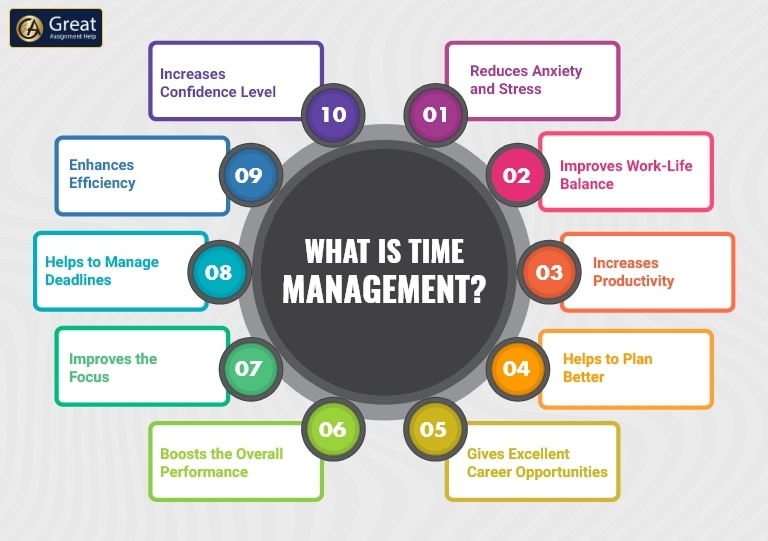The Importance Of Middle Management: Benefits For Employees And Companies

Table of Contents
Often overlooked, middle management plays a pivotal role in organizational success. Increasingly, businesses are recognizing the crucial contribution of effective middle management to employee engagement and overall company profitability. This article will explore the significant benefits that strong middle management brings to both employees and the company, demonstrating why investing in this crucial layer of leadership is essential for a thriving organization. We'll delve into how effective middle management strategies impact everything from employee retention to operational efficiency.
<h2>Enhanced Employee Engagement and Retention through Middle Management</h2>
Effective middle managers act as a vital bridge, connecting upper management's strategic vision with the day-to-day realities faced by employees. This crucial link fosters a more engaged and productive workforce, leading to improved retention rates.
<h3>Improved Communication and Feedback</h3>
Middle managers facilitate open communication, ensuring that information flows smoothly in both directions. This crucial role involves:
- Regular feedback sessions: Providing constructive feedback and actively listening to employee concerns.
- Transparent communication: Sharing relevant company updates and explaining strategic decisions.
- Proactive issue resolution: Addressing employee concerns promptly and effectively.
Effective communication strategies employed by successful middle managers often include regular team meetings, open-door policies, and the use of collaborative communication tools. The direct link between open communication and higher employee morale is well-documented, leading to significantly higher employee retention rates.
<h3>Mentorship and Development Opportunities</h3>
Middle managers play a crucial role in identifying and nurturing talent within their teams. This involves:
- Mentorship programs: Guiding and supporting employees' professional growth.
- Training initiatives: Identifying skill gaps and providing opportunities for development.
- Career progression planning: Helping employees map out their career paths within the organization.
Mentorship fosters employee loyalty and accelerates skill development, directly contributing to improved team performance and reduced turnover. Investing in mentorship through middle management yields significant returns in employee retention and overall organizational capability.
<h3>Fostering a Positive Work Environment</h3>
Middle managers are instrumental in cultivating a positive and supportive work environment. This includes:
- Promoting teamwork: Fostering collaboration and a sense of shared purpose.
- Recognizing achievements: Celebrating individual and team successes.
- Supporting work-life balance: Encouraging healthy boundaries and preventing burnout.
Studies show a strong correlation between a positive work environment and increased productivity, as well as significantly reduced employee turnover. Middle management's role in creating this positive atmosphere is paramount to organizational success.
<h2>Driving Operational Efficiency and Productivity through Middle Management</h2>
Middle managers are key drivers of operational efficiency and increased productivity. Their contributions extend far beyond simply managing their teams; they actively shape the organizational performance.
<h3>Strategic Implementation and Goal Setting</h3>
Middle managers translate overarching company strategies into actionable goals for their teams. This involves:
- Effective goal-setting frameworks: Using SMART goals (Specific, Measurable, Achievable, Relevant, Time-bound) to set clear expectations.
- Breaking down complex tasks: Dividing large projects into manageable sub-tasks for efficient execution.
- Regular progress monitoring: Tracking team progress towards goals and adjusting strategies as needed.
Clearly defined goals, efficiently implemented by engaged teams, directly translate into enhanced productivity and achievement of business objectives.
<h3>Resource Allocation and Optimization</h3>
Middle managers play a critical role in effectively allocating resources, ensuring optimal utilization of budget, personnel, and other resources. This includes:
- Budget management: Allocating funds strategically to support team objectives.
- Personnel deployment: Assigning tasks to the most appropriate team members.
- Resource prioritization: Focusing on the most impactful initiatives.
Efficient resource management, a core competency of effective middle management, directly contributes to improved profitability and reduced operational costs.
<h3>Performance Monitoring and Improvement</h3>
Middle managers are responsible for tracking team performance, identifying areas for improvement, and implementing corrective actions. This includes:
- Performance monitoring tools: Utilizing data and metrics to assess team progress.
- Identifying improvement areas: Pinpointing weaknesses and opportunities for optimization.
- Implementing corrective actions: Taking steps to address performance issues and improve efficiency.
Continuous performance monitoring and improvement, championed by proactive middle management, leads to ongoing organizational growth and greater efficiency.
<h2>Bridging the Gap: Middle Management as a Crucial Link Between Upper Management and Employees</h2>
Middle management serves as the essential link between the strategic direction of upper management and the execution by employees. They translate complex strategies into clear, achievable tasks, ensuring alignment between company objectives and employee efforts.
Their role in conflict resolution and problem-solving is equally critical, proactively addressing issues before they escalate, ensuring a smoother workflow and improved team morale. Companies that effectively leverage their middle management demonstrate significantly improved communication and achieve business goals more efficiently. Examples include companies that implement regular feedback loops, mentorship programs, and open communication channels, facilitated by their middle management.
<h2>Conclusion: The Indispensable Role of Middle Management</h2>
Strong middle management is indispensable for both employee well-being and company success. We've explored how effective middle management significantly enhances employee engagement and retention through improved communication, mentorship, and positive work environments. Furthermore, we've highlighted their crucial role in driving operational efficiency and productivity through strategic implementation, resource optimization, and performance monitoring. Middle management bridges the gap between upper management and employees, ensuring alignment and efficient execution of company strategies.
Invest in your middle management today to cultivate a more engaged workforce and a more profitable business. Strengthening your middle management is an investment in your organization's future success. The strength of your middle management is directly proportional to the overall success of your company.

Featured Posts
-
 Jessica Tarlov Critiques Jeanine Pirros Pro Trade War Stance On Canada
May 09, 2025
Jessica Tarlov Critiques Jeanine Pirros Pro Trade War Stance On Canada
May 09, 2025 -
 Elizabeth City Apartment Complex Car Break Ins Dozens Of Vehicles Targeted
May 09, 2025
Elizabeth City Apartment Complex Car Break Ins Dozens Of Vehicles Targeted
May 09, 2025 -
 Antqal Jysws Lflamnghw Rd Alshmrany Almuthyr Lljdl
May 09, 2025
Antqal Jysws Lflamnghw Rd Alshmrany Almuthyr Lljdl
May 09, 2025 -
 Madeleine Mc Cann Disappearance A 23 Year Olds Dna Test Results And The Ongoing Investigation
May 09, 2025
Madeleine Mc Cann Disappearance A 23 Year Olds Dna Test Results And The Ongoing Investigation
May 09, 2025 -
 Reysy Otmeneny V Aeroportu Permi Iz Za Snegopada
May 09, 2025
Reysy Otmeneny V Aeroportu Permi Iz Za Snegopada
May 09, 2025
